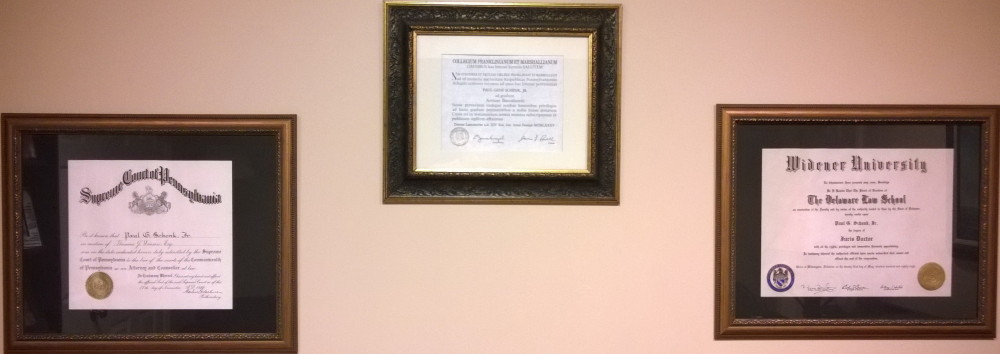THE FOLLOWING LEGAL STUDY ARTICLE POSTING IS INTENDED TO SUPPORT AWARENESS AND UNDERSTANDING. IT IS ONLY A PRELIMINARY LEVEL LEGAL STUDY ARTICLE AND IT IS NOT LEGAL ADVICE. IF THE READER SEEKS LEGAL ADVICE CONCERNING HIS OR HER PARTICULAR SITUATION, HE OR SHE SHOULD SEEK OUT AN ATTORNEY IN A LAWYER CLIENT RELATIONSHIP.
_________________________________________________________
Pennsylvania’s most recent Power of Attorney law acts to help bind the decision making discretion of health care Agents by facilitating advance health care directive based health care Power of Attorney forms. The law also distances Principals from the counsel of their lawyers and from careful, competent and diligent health care Agents who have a duty to exercise due care , good faith and loyalty in their best interest and benefit .
The new Power of Attorney law in Pennsylvania is referred to as Act 95 of 2014. The statute begins at 20 Pa C.S.A. § 5601 . All sections of the law were fully effective as of January 1, 2015.
Among the numerous changes made to the former Power of Attorney law, the new law now eliminates the ability of a Principal to empower an Agent to authorize admission to a medical facility and to authorize medical procedures under a General Durable Power of Attorney form. See 20 Pa C.S.A. §5602 (a) , § 5603(h) .
Additionally , the new law specifically exempts Power of Attorney forms that are exclusively health care and mental health care Power of Attorney forms from : a. the applicability of the § 5601.3 Agent duty requirements that apply to non-health care related Power of Attorney forms, b. the applicability of introductory § 5601 ( c ) notice requirements , and c. the applicability of § 5601 (d) Agent acknowledgment requirements. See 20 Pa C.S.A. § 5601( e.2).
Important duties of a Agent under a non-health care Power of Attorney form are now not applicable to an Agent under a health care or mental health care Power of Attorney form. Such non-applicable duties include the duty to act loyally for the principal’s benefit, the duty to act with the care competence and diligence ordinarily exercised by Agents in similar circumstances, and the duty to keep a record of all receipts, disbursements and transactions made on behalf of the Principal. See 20 Pa C.S.A. § 5601( e.2), § 5601 .3 (b) , 1, 3, 4 .
Unlike a non health care related Power of Attorney form , a health care and/or mental health care Power of Attorney form requires no introductory § 5601 ( c ) notice to the Principal and thus no acknowledgment by the Principal that his or her Agent must use due care to act for the Principal’s benefit ; no notice to the Principal that the Agent must act in good faith for the Principal’s best interest ; no notice to the Principal that the Principal can choose to grant broad authority to an Agent under a Power of Attorney form, including a healthcare and or mental health care power of attorney form ; and no notice to the Principal that the Principal should seek the advice of an Attorney at Law to make sure he or she understands the Power of Attorney form before signing it. See 20 Pa C.S.A. § 5601( e.2), § 5601 ( c ) , § 5465, § 5833 .
Accordingly , unlike a non-health care related Power of Attorney form , an Agent acting under a health and/or mental health care Power of Attorney form need not acknowledge in writing that he or she will act in good faith in accord with the Principal’s best interest . See 20 Pa C.S.A. § 5601( e.2), § 5601 ( d ) .
The new law also indicates that , should a Principal become unable to understand, make or communicate decisions about medical care, his or her wishes are most likely to be followed if the Principal expresses those wishes in advance by giving health care treatment instructions to his or her health care Agent or provider. See 20 Pa C.S.A. § 5471. Instructions include an advance health care directive and/or mental healthcare declaration. See 20 Pa C.S.A. § 5456 (4) and § 5836 (4). The authority of a health care or mental health care Agent to make decisions is limited to his or her understanding and interpretation of those advance instruction decisions by the Principal .See 20 Pa C.S.A. § 5456 (4) and § 5836 (4).
As part of the health care provider licensure process, the Pennsylvania Department of Health is to ensure that health care providers under its jurisdiction have policies and procedures in place to implement this advance directive limitation upon a health care Agent’s decision making discretion . See 20 Pa C.S.A. § 5456 (6) .
Even though the new Power of Attorney law indicates that Pennsylvania law protects a Principal’s health care Agent and health care providers from any legal liability for following a Principal’s advance directive based Power of Attorney form in good faith or honesty in fact , the law indicates that this liability limitation does not otherwise change professional standards or excuse negligence in the way a Principal’s wishes are carried out. See 20 Pa C.S.A. § 5471, 5601(f).
———————————————————————————————-
To See A Categorically Listed Archive Of Preliminary Legal Study Based Article Posts , See The Drop Down Box On This Page Or Click https://studypostlex.com/categorizedarchive/
